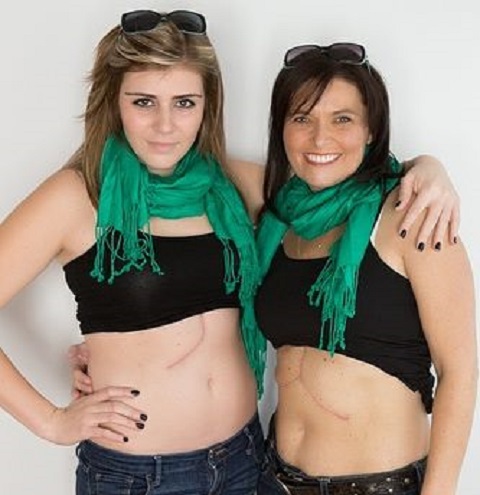Nova Scotia could become the first province in Canada to adopt a policy of presumed consent for organ donation.

That means unless you say no — or your next of kin says no — your organs will be donated if they can be.
Children under the age of 19 will be exempt from the law, which is expected to be implemented in 2020.
Some have raised concerns about the practice, saying it could cause more doubt about the donor’s wishes.
Currently, around 20 per cent of organ donors do not donate their organs because of the decisions made by next of kin, said James Breckenridge, CEO of the Canadian Transplant Association (CTA).
“It doesn’t really mean anything because next of kin still has the final say,” Breckenridge said.
He explained that an opt-out program would lead to fewer conversations between the donor and their spouse, family member or loved one with power of attorney.
Without a conversation about organ donation, the decision would “put more doubt in their mind as to whether that person wanted to be a donor because now they’ve never even mentioned it,” he explained.
WATCH: Here’s why organ donation is so important to consider

But others praised the practice, saying it’ll boost Canada’s low numbers of organ donors and that presumed consent will make it easier to start a conversation about organ donation.
“Too few families discuss organ donation as it forces each member to contemplate their own mortality so I get why it’s not anyone’s favourite choice of conversation,” said Brent Dueck, who received a kidney from his father 17 years ago.
The program would allow people who explicitly don’t want their organs donated for religious or otherwise personal reasons to opt out, but they would have to make the decision themselves.
“With ‘opt out,’ it makes this conversation a necessity and also gives opportunity for those that would gladly have their body used in such a noble manner to have that discussion with family and let their desire be known,” Dueck added.

Get weekly health news
Living organ donor Erica Horgan agrees that the issue of consent from the next of kin is a “grey area.” Horgan donated 70 per cent of her liver to her neighbor at the age of 21 and has seen first-hand the improvements to her neighbour’s life.

“But in respect to the opt-out, I think that everyone should get on board because … you are more likely and willing to opt out of something you don’t want to do than make the time to do something voluntarily.”
It’s an important issue for Dueck, who lives in Winnipeg where there isn’t presumed consent. He will need another kidney since his body is currently developing antibodies against the transplanted kidney.
“I am on borrowed time. As a father of two, I can tell you my health is, of course, paramount in my ability to be the kind of active, loving father I want to be,” he said.
“An opt-out program would mean far fewer of those precious gifts would be lost to those in desperate need.”
Dr. Stephen Beed, medical director of Nova Scotia’s Legacy of Life and critical care organ donation program, hopes the program will significantly raise the number of donors.
“A presumed-consent system in other jurisdictions has generally resulted in a ballpark 20, 30, sometimes 35 per cent increase in donation rates,” Beed told the Canadian Press. “That’s what we are hoping for.”
WATCH: Family of Logan Boulet announce Green Shirt Day ‘to honour his legacy’

Other options for provinces looking to up their donor numbers
If the legislation passes in Nova Scotia, it will be the first jurisdiction of its kind in North America. All other provinces currently have an opt-in policy.
Canada’s organ donation rate lags behind that of other developed countries with around 21 people per million of population (PMP), according to the International Registry of Organ Donation and Transplantation.
Breckenridge would prefer a system where adults were asked up front whether they want to be organ donors when they are being issued their provincial health card.
“Right now, we don’t have an answer from a lot of the people across the country, and I think that’s what the problem is,” he said.
“You have to make a declaration. Yes, I want to be a donor. No, I don’t want to be a donor.”
- ‘A normal thing now’: Canadian family says extortion gang is preying on them
- Winter storms, rain and snow walloping Canada. Here’s where you’ll see it
- ‘Really challenging issue’: Many B.C. communities still at high risk for flooding
- Cold warnings across the Prairies forecast wind-chill temperatures near -45 C
Another system in use elsewhere in the world is a close relationship between organ donation organizations and potential donors and/or their families.
The U.S. has a 35 PMP donation rate.
Spain has the highest rate at 49 PMP. It has had presumed consent since 1979, although donation rates only started rising 10 years later when the country supplemented the system with more funding for transplant programs and more co-ordination between families of donors and transplant organizations.
Opt-out hasn’t worked everywhere
According to the World Health Organization, “there is evidence that supports the association between presumed consent and increased donation rates.
“However, presumed consent appears to be only one of several influential factors.”
Chile saw a decrease in donations after implementing its opt-out laws for a variety of reasons, including a lack of education and transplantation infrastructure as well as public attitudes.
Places like France and Brazil saw a decrease in organ donations after implementing the system, the BBC reports, while Sweden’s rate remained about the same at around 16 PMP.
“This is not apples to apples,” Breckenridge explained.
He said other differences to keep in mind include factors like weather. Many organ donations in places like Spain or Italy come from motorcycle or bicycle accidents, but motorcycles aren’t often on the road during Canadian winters.
How to register as a donor
Organ donation registration is done provincially so interested donors can visit the CTA website or Organ Tissue Donation and select your province to complete the requisite forms. You can also sign-up in-person. People interested in becoming living donors should contact hospital transplant programs directly.









Comments